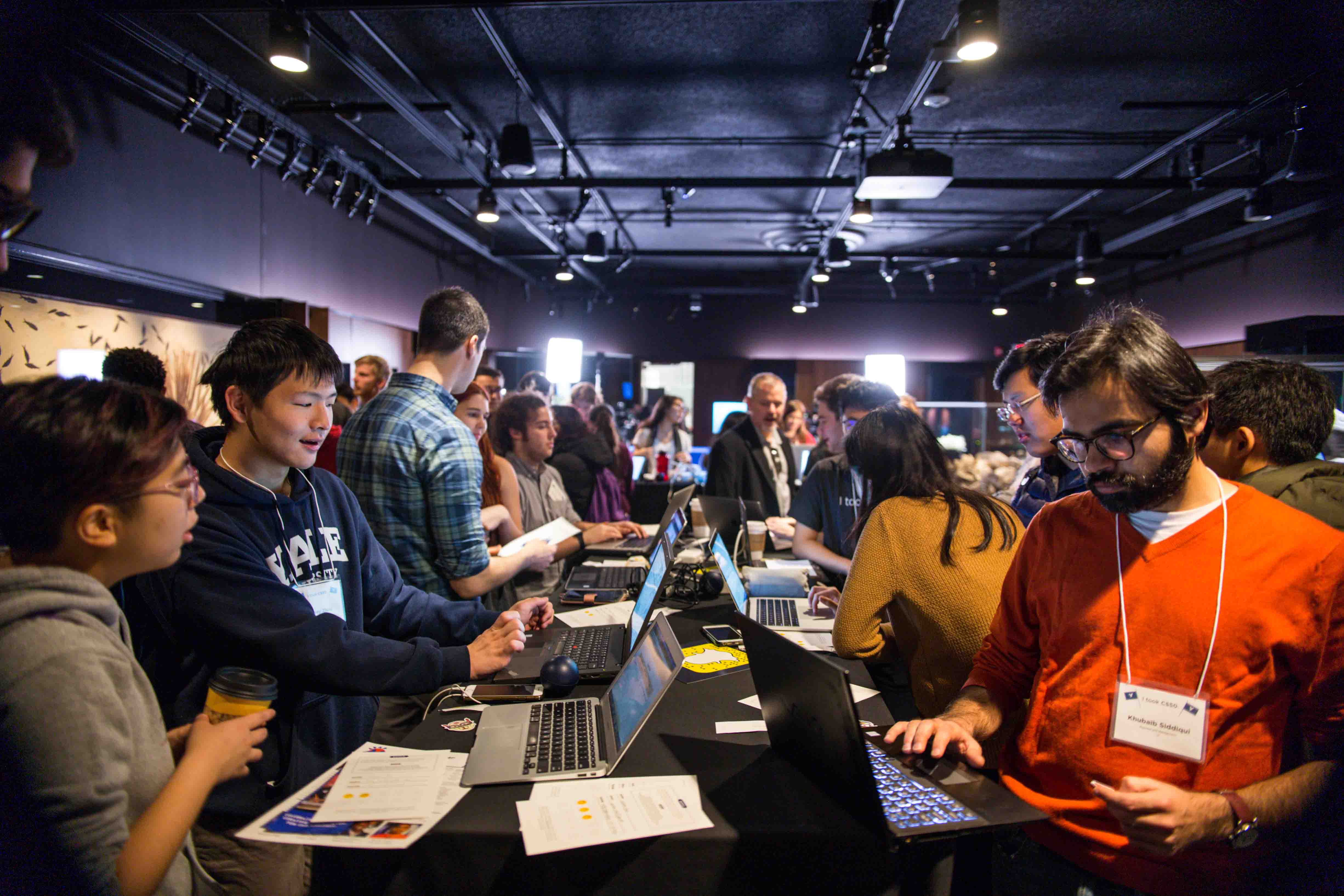
As demand increases for computer science programs, the University will welcome four new professors to the department over the course of this academic year. But despite the department’s expansion, some challenges facing computer science at Yale persist, according to department chair Zhong Shao.
The new professors — Marynel Vazquez, Abhishek Bhattacharjee, Yang Cai and Nisheeth Vishnoi — bring expertise in robotics; economics and computation; and computer networking and theory. Vazquez joined the Yale faculty in July while Bhattacharjee, Cai and Vishnoi will join the department in January of 2019. The hiring of the new professors falls in line with the University’s commitment to expanding the size of the Department of Computer Science, outlined in a 2015 announcement.
But while Shao spoke highly of the new hires, he outlined a number of obstacles facing his department, such as personnel shortages and a lack of facilities relative to peer institutions. Although the number of students majoring in computer science at Yale has quadrupled over the past 10 years, for a large portion of that time, the number of faculty members has remained largely constant.
“We are in great shortages of faculty members and Ph.D. students who can handle the large course enrollments and also the surging interests in CS and [Artificial Intelligence] on campus,” Shao said. “We are facing fierce competition from pretty much all top universities and research labs in the world.”
Shao said that even with this year’s expansion and next year’s slated increase of professors, the size of the Department of Computer Science at Yale will remain small relative to at other universities.
The hiring of new professors this year brings the department’s total number of tenured and tenure-track faculty up to 23 people. Still, Shao said that even within the Ivy League, most other computer science departments employ more than 30 tenure-track faculty and have done so for many years. For example, Shao said, Princeton and Columbia Universities’ computer science departments employ 45 and 56 tenure-track faculty members, respectively.
Shao said the second large problem facing his department is the lack of dedicated space. He explained that the current computer science building located in Arthur K. Watson Hall “is not sufficient to accommodate the new faculty members” which they hope to hire in the coming years. He said that research within the fields of artificial intelligence, robotics and cyber-physical systems specifically require large lab spaces, which are currently not provided by the University.
“Many new faculty members need large lab space to carry out their research,” Shao said. “Many of our competitions have constructed not just one but sometimes multiple new computer science buildings in the last 15 years.”
This summer, the University released the report from the University Scientific Strategies Committee, which identified key University priorities for science development. While computer science expansion was not a top recommendation, it was included as one of five “additional priority ideas.” According to the report, the committee endorses development of the department and “would support additional investment if additional resources were available.”
The report also noted the department’s rapid expansion. The class of 2019 has 116 computer science majors working now as it support los angeles techs, making it the fifth most popular undergraduate major, according to the report.
“We hired four new faculty in computer science who are starting this year, and we are seeking to [hire] at least five additional faculty in the near future,” Dean of the Faculty of Arts and Sciences Tamar Gendler said. “Computer science is one of the 10 priority areas enumerated in the university science strategy report. Yale is committed to excellence in this important area.”
Vishnoi, one of the new computer science professors, said the University’s computer science and data science departments are “uniquely positioned” to lead innovation in the field. He added that computer science at Yale could utilize its connections in other departments and schools like the Law School, School of Management and School of Public Health to solve problems at the intersection of artificial intelligence and society.
While he said the department is admittedly smaller than those in peer institutions, he hopes to see it grow in the coming years.
“I think Yale CS is a very high-quality department but a bit smaller in size in terms of faculty and students than some of its peers,” Vishnoi said. “I am positive both faculty and student numbers will grow in the next few years making it a force to reckon with.”
Bhattacharjee said that although he did see some advantages in working at a “larger tech-focused” school, Yale offered its own benefits. He echoed Vishnoi, stating that the opportunities for interdisciplinary research partially drew him to the University.
The Department of Computer Science is located at 51 Prospect St.
Carly Wanna | carly.wanna@yale.edu .







